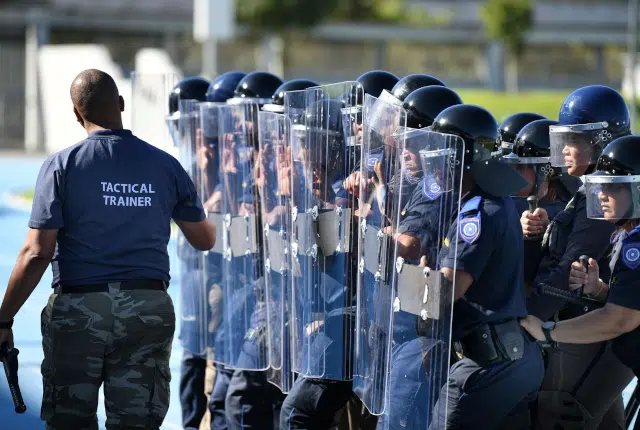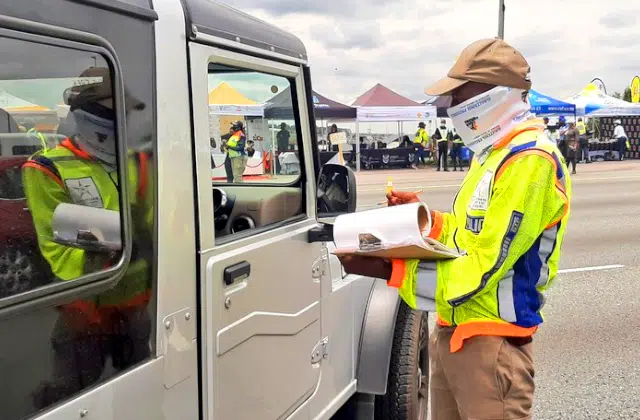
Ramaphosa shoots down Cape Town’s plan to build its own police force
President Cyril Ramaphosa has rejected calls from the Democratic Alliance (DA) and the Western Cape government to “devolve” policing powers from the South African Police Service to provincial police authorities.
The DA-run province has been pushing the government and police minister Bheki Cele in particular, to give up some of the national policing competencies to the provinces so that it can better handle its own local security.
Cape Town mayor Geordin Hill-Lewis said in August that the city wanted to boost its police force and extend its powers to investigate and convict criminals after the SAPS turned up a woeful conviction rate and left the province under-resourced to deal with crime.
“Lost dockets, lack of evidence and corrupt officials are staple features of SAPS investigations, which is why so many criminals still roam our streets, terrorising communities. These failures give the many hard-working SAPS officers a bad name and erode public trust in the police,” Hill-Lewis said.
“Our officers are limited to crime prevention in the main, with limited scope for criminal investigations. While we already use that existing scope to the full, and we are fully confident in our power to do so, we also want to do so much more,” he said.
“By going beyond crime prevention, we could be doing so much more to help SAPS build prosecution-ready case dockets. Instead, our officers have to rely on an overwhelmed and under-resourced SAPS that, frankly, does not have the capacity to investigate crime properly.”
The province has made several requests to Cele and the national department for more power to be given to metro police, but these have consistently been rejected.
“Section 99 of the Constitution provides that ‘a Cabinet member may assign any power or function…to a Municipal Council’. Accordingly, I have written to the minister to request that he uses his constitutionally-enshrined power to give us the policing powers we need,” Hill-Lewis said.
The relationship between the DA-led province and the police minister is wrought, bordering on outright hostile.
When Cele visited the province to address security concerns from communities, provincial authorities were excluded from the meeting. The DA, meanwhile, has made its disdain for Cele known, running political campaigns in the province and nationally to have him dismissed.
The answer is no
Responding to a parliamentary Q&A in August, Cele said that the Constitution of South Africa stipulates that policing services are structured to function under the national commissioner, who has exclusive power to control and manage the SAPS.
He said there is no need to identify or investigate any other approach.
Responding to the DA on the matter this week, president Ramaphosa reiterated this position, saying that the Constitution provides that the security services of South Africa consist of a single police service.
“The National Commissioner is responsible to control and manage the police service in accordance with the national policing policy and directions of the Minister of Police.
“The Constitution further provides that a provincial commissioner is responsible for policing in his or her province, as prescribed by national legislation and subject to the power of the National Commissioner to exercise control over and manage the police service,” the president said.
He added that Cele, or any minister of police for that matter, does not have policing powers, so he cannot assign or transfer the powers and responsibilities to a provincial or municipal council.
“Such transfer will be inconsistent with the provisions as contained in Chapter 11 of the Constitution, and accordingly, invalid,” he said.
Ramaphosa said that the government does not have a policy on devolving policing powers to provinces as SAPS is a national competency.
Read: Cape Town wants its own fully fledged police force – with more powers



